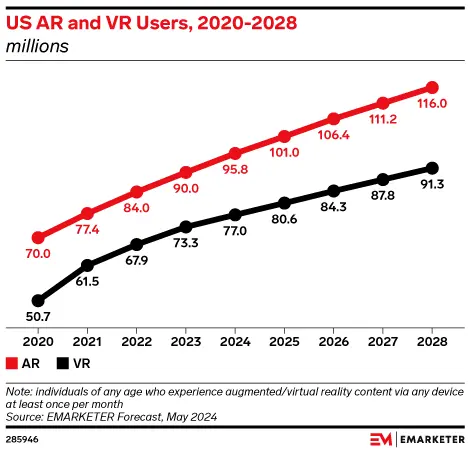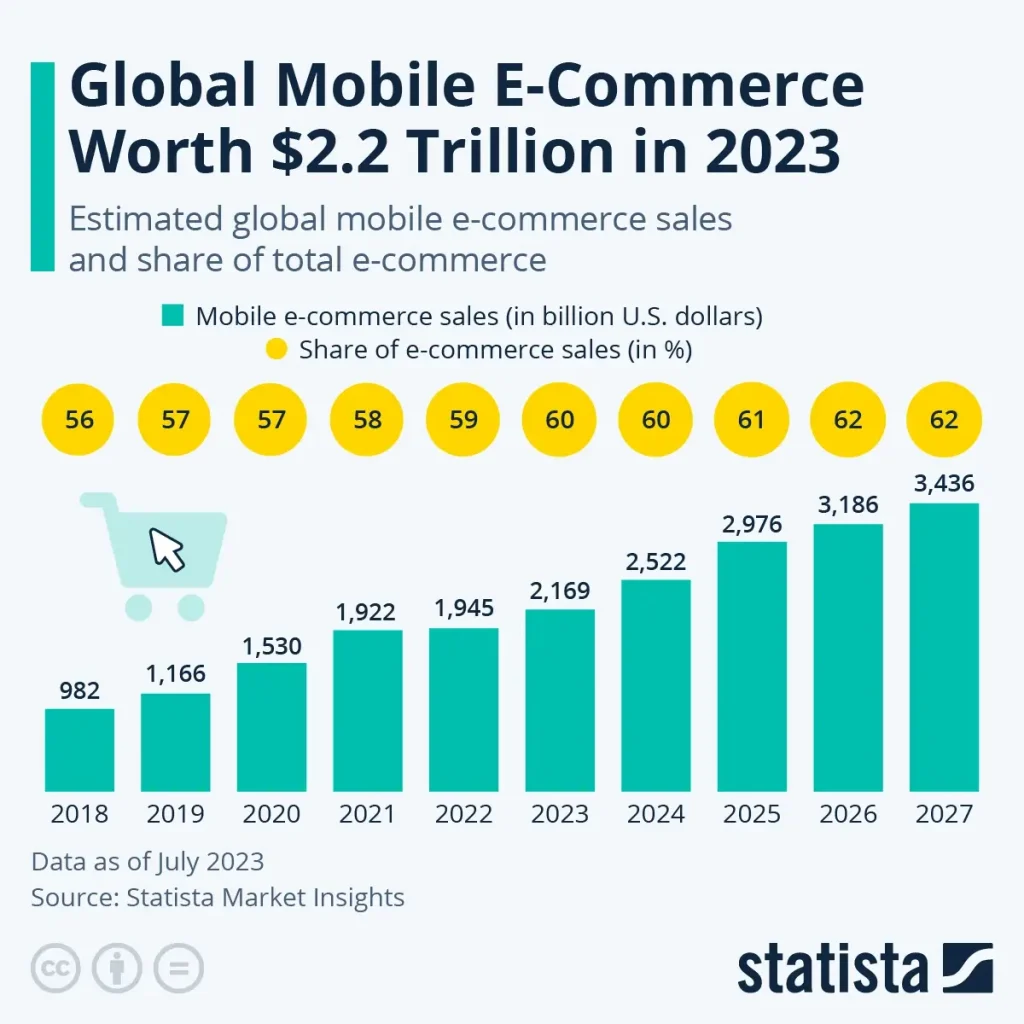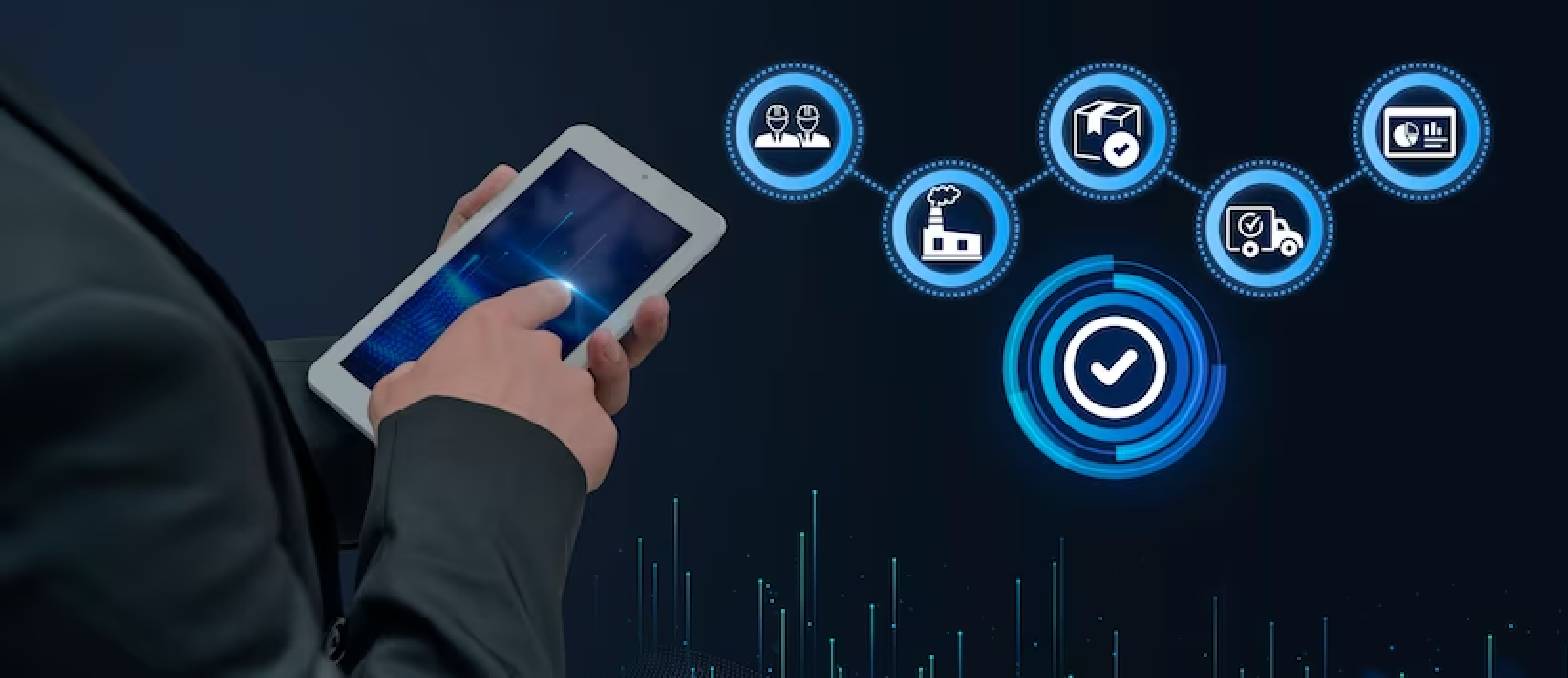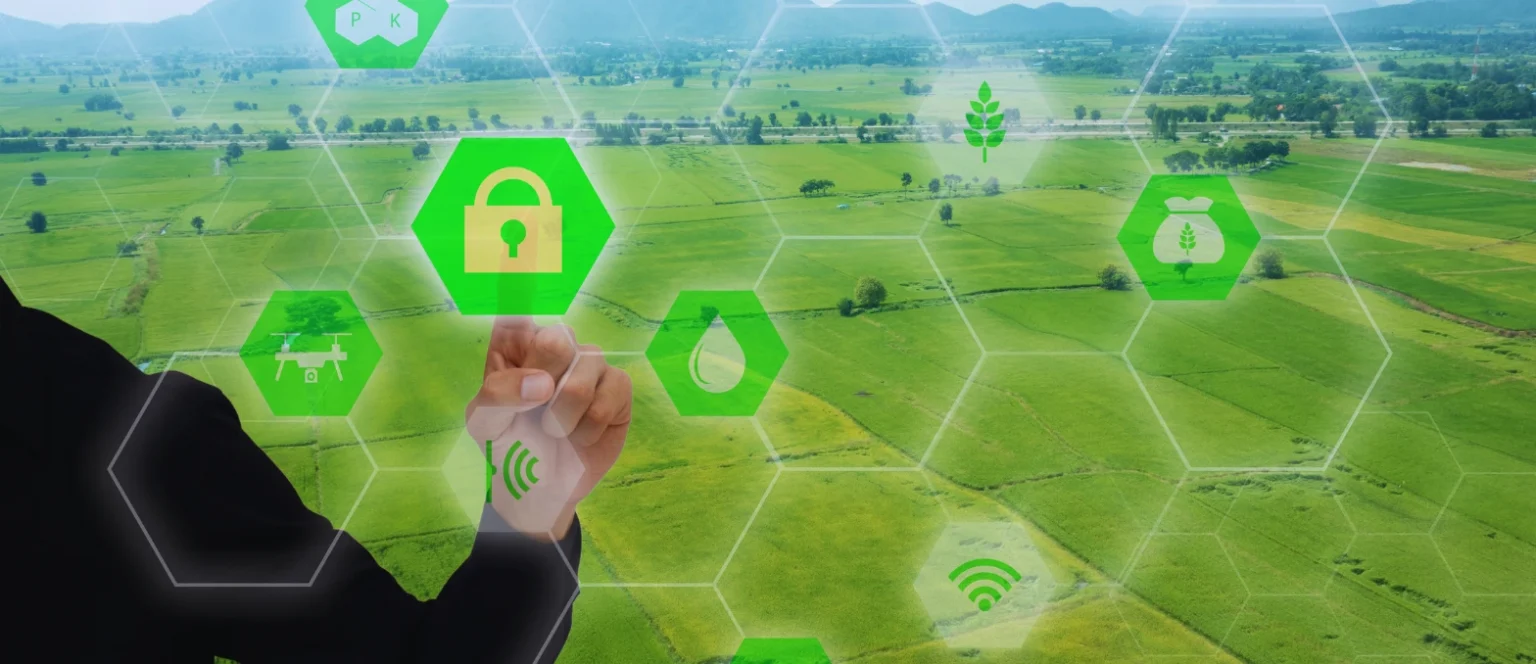Table of Contents
With smartphones becoming an integral part of our daily lives, the mobile shopping experience has taken precedence over the desktop. Customers today expect to be able to shop seamlessly on their mobile devices at any time of the day. Unsurprisingly, mobile commerce, or m-commerce, accounts for over 65% of all global e-commerce sales. Developing an e-commerce app has become critical for businesses to engage with customers, drive sales, and build their brands.
It allows timely promotions and personalized recommendations to keep shoppers engaged. The app’s analytics also provide valuable insights into customer behavior and shopping patterns. Special features like in-app notifications, search, and loyalty programs enhance stickiness.
E-commerce apps are also instrumental for multi-channel commerce strategies. Many hybrid mobile development companies and iOS app development agencies build integration capabilities that enable a unified shopping experience across phones, tablets, and desktops. Customers can start browsing on one device and seamlessly complete the transaction on another. This provides flexibility and increases the average basket size. With the latest trends entering the e-commerce industry, the sector is taking leaps and bounds.
E-commerce trends like mobile channels’ on-the-go nature and personalization make e-commerce apps particularly well-suited for impulse purchases. Social and location-based engagements can prompt nearby customers to make impromptu in-app purchases, and push notifications timed with customer activity patterns nudge them to revisit the app. In this blog, we have looked at the various e-commerce trends 2025.
What are E-commerce Apps?
When mobile shopping apps and e-commerce apps enable paid strategic positioning of products for sale or employ push notifications to advertise products, they also serve as marketing tools. Another name for mobile app development for e-commerce is m-commerce or mCommerce.
In the e-commerce sector, transactions are typically categorized as either business-to-business (B2B), business-to-consumer (B2C), or consumer-to-consumer (C2C). The relationship between the buyer and seller is the focus of e-commerce apps. The numerous uses of e-commerce and the different kinds of e-commerce app experiences in the e-commerce business can be divided into these categories.
E-commerce Applications for Business to Consumer (B2C) eCommerce
Listing products for sale, controlling shopping carts, processing payments, and shipping goods are all functions of a business-to-consumer eCommerce platform. Amazon, eBay, Allegro, Shopee, and others are examples.
E-commerce Applications for Consumer-to-Consumer (C2C) eCommerce
C2C eCommerce apps serve as middlemen for payments and dispute resolution, facilitating customer transactions. EBay is a perfect example with features like real-time online bidding and social media integration for competitive marketing. Other examples of C2C eCommerce apps include Craigslist, Etsy, OLX, and Facebook Marketplace.
E-commerce Applications for Business-to-Business (B2B) eCommerce
The special requirements of companies selling to other companies are met by B2B eCommerce platforms, which frequently entail continuing partnerships and intricate negotiations. Chat and push notifications are crucial features. One example is Alibaba, which offers a marketplace for small exporters and manufacturers to sell globally. Additional examples of B2B eCommerce software include WooCommerce, Adobe Commerce (formerly MAGENTO), and BigCommerce.
The Latest Trends in Developing E-commerce Apps
With the e-commerce industry being revolutionized thanks to the rising demands of consumers here are some of the top trends in e-commerce that is transforming the industry:
AR/VR offers online the in-store experience.
Enter augmented reality (AR); one of the most significant online purchasing difficulties is the impossibility of viewing, touching, and ultimately experiencing a product in person before buying.
By the end of 2028, eMarketer projects that AR users in the US will number 116 million, accounting for 32% of the population. By closing the distance between the physical and digital worlds, AR and VR (virtual reality) are transforming the online buying experience.
Today’s stores use augmented reality (AR) for interactive 3D product displays and virtual try-ons. This lets customers see items in virtual settings, and with this, e-commerce stores can boost buyer confidence and lower return rates.

Raising the volume using voice search.
Since 75% of US households are expected to have a smart speaker or voice assistant by 2025, voice search is rapidly increasing in the e-commerce sector.
Voice assistants such as Amazon Alexa and Google Assistant have changed how consumers connect with e-commerce sites by offering a hands-free, quick approach to shopping. Customers may easily search for products, purchase, pre-order groceries, and track orders using a voice command.
Many e-commerce companies are looking to streamline their websites for voice search—this helps in guaranteeing speedy and accurate answers to voice inquiries. As voice technology develops, its inclusion into the purchasing experience as the latest B2B or D2C e-commerce trends will improve consumer convenience and increase online sales.
Artificial intelligence addresses consumer issues.
By now, artificial intelligence (AI) and machine learning are almost household names.
In the past few years, AI has revolutionized the e-commerce sector. One of the leading e-commerce trends has enabled companies to automate all operations, from customizing product recommendations to simplifying customer service with chatbots to supply chain optimization. AI has broadened the horizons for various e-commerce companies.
By using data to enhance personalizing and customer care, artificial intelligence will enhance the purchasing experience for every individual. It will offer services similar to what a customer expects when they deal with a live salesperson. Generative artificial intelligence, for instance, will assist consumers in completing orders, answering queries, locating goods, and handling returns. AI-powered tools and partner integrations increase engagement, simplify processes, and enable fresh, innovative approaches to draw in and convert customers.
Like Customers, Their Data Is The King
According to studies, personalization stimulates client loyalty. According to Google and Storyline Strategies research, 72% of consumers are more inclined to be loyal to a brand if a company provides a customized customer experience.
But modern personalization goes beyond a “Hi [First Name]!” at the start of an email. This trend in e-commerce entails seeing your consumer, knowing them, and customizing every phase of the purchase process according to their preferences.
So, what does this mean for modern e-commerce companies?
For many, B2B e-commerce trends offer a flawless omnichannel experience interacting with the consumer at every contact point. For data optimization, product listing, and order syncing across social and marketplace platforms, stores can use product feed management technologies such as Feedonomics. Companies may provide every consumer with a distinctive experience with tailored product suggestions, ad retargeting, push alerts, and even dynamic pricing.
Retailers are reacting, meanwhile, by allowing customers the opportunity to “opt-in,” thereby customizing themselves in response to growing wary of how businesses retain and utilize their data. Not only does this help companies be open about how they utilize consumer data and follow consumer data privacy rules such as Europe’s GDPR and the California Consumer Privacy Act (CCPA) and strengthen trust with their customers.
Chat Marketing For Humanized Digital Experience.
Although chatbot interactions could initially have felt robotic and stiff, advances in generative artificial intelligence have greatly enhanced how online consumers might use these tools.
As part of B2C e-commerce trends, AI-powered assistants can answer questions immediately, guide product searches, and enable flawless transactions today by emulating human speech efficiently and emotionally. Chatbots simplify consumer support and build customer relationships and loyalty for e-commerce firms by providing real-time help and tailored recommendations. Chatbots will become essential as they develop in providing tailored marketing messages, lead nurturing, and conversion-driving power.
Mobile Shopping Is Still In Flux.
There is hardly anyone who does not have access to a smartphone. Additionally, almost every smartphone has an online shopping app. Predicted to reach 62% in 2027, the proportion of mobile shopping in all e-commerce has been climbing.

Thus, online companies should ensure their e-commerce sites are mobile-responsive and offer a flawless experience on all devices. Mobile e-commerce trends entail maximizing content for smaller screens, allowing one-click ordering, and providing other conveniences supporting on-the-go shopping.
Closing The Deal With Choices For Flexible Payments.
No experience is more important for the consumer journey than checkout. The slightest inconvenience during the process can cause a sale to become an abandoned cart. The best checkout experiences for many consumers are those with flexible payment choices. 13% of consumers will abandon their carts if insufficient payment options are unavailable. This emphasizes a range of payment choices available: credit cards, digital wallets like PayPal or Apple Wallet, and one-click checkout choices like Bolt.
Furthermore, with this as one of the e-commerce trends, you can link your physical stores with your online business by providing financing choices, including buy now and pay later (BNPL). Working with companies like Klarna, Sezzle, and Affirm will help online customers pay in installments without additional interest, improving average order values, conversion rates, and sales.
The digital invention is driven by composable commerce.
How can online stores react fast to technology change and follow new e-commerce trends? Moreover, how can e-commerce systems satisfy the needs of the contemporary consumer?
Introduction to composable commerce;
Composable commerce lets you combine your tech stack’s components to fit your company’s requirements by aggregating Packaged Business Capabilities (PBCs).
Using a composable commerce approach lets companies select best-in-breed vendors to build a strong, functional technology stack that fits best for their corporate environment instead of depending on one vendor for all their business needs.
Shopping gets social.
Instagram, Facebook, and TikTok have evolved over the past few years from just social media channels to sites for social commerce. Insider Intelligence projects 110.4 million individuals will shop using social media platforms by 2025.
Experiences like one-click checkout and live shopping are getting increasingly popular. Therefore, these channels are becoming increasingly customer-friendly, making it easy for consumers to look for and buy things. Furthermore, the low barriers to social commerce allow small and large internet companies to improve brand exposure, expand their audience, and provide a frictionless purchasing experience.
Subscriptions keep consumers returning
From food and drink brands to clothes rental businesses, subscription services have seized control over a broad spectrum of e-commerce sectors and keep expanding. The Washington Post even projects that the “subscription economy” would expand to $1.5 trillion by 2025.
Many e-commerce companies find this business model appealing since it provides ongoing income and higher client loyalty. Combined with a loyalty program, these subscription models can provide consumers early access to new products, exclusive discounts and offers, and individualized customer service.
Sentiment Analysis For Improved Customer Experience
Various trends have come and gone. However, customer reviews, ratings, and feedback have remained constant. Reviews and ratings have a significant effect on a customer’s purchasing decision. However, reading all the reviews and analyzing the content can be difficult. Wouldn’t finding out what consumers think about your product would be helpful? If you could understand their voice and make it work for you?
Sentiment analysis can help with this. It makes it possible to highlight and address the current problem at its core. This method involves using machine learning or natural language processing (NLP) to determine customers’ sentiments based on their reviews and comments.
By analyzing consumer feelings and responses to their goods or services, sentiment analysis enables brands to take advantage of it. It helps them pinpoint the underlying reasons for both positive and negative reviews. This e-commerce trend is an excellent tool for any brand looking to track its reputation, evaluate the performance of its products, and enhance its offerings.
Sustainability starts to take the front stage.
Sustainability is no longer only a buzzword for today’s internet buyers. A new PwC study indicates that more than seventy percent of consumers would be ready to pay more for sustainably made products.
Particularly in the fashion and apparel sectors, younger consumers choose firms prioritizing ethical and environmental standards over those neglecting them. Gen Z and Millennials feel sustainability is important while purchasing apparel, accessories, or shoes. This change in buying behavior shows developing mobile e-commerce trends whereby consumers take more and more of the environmental impact of their purchases into account, affecting their loyalty and general brand impression.
Buyers in business-to-business environments want contemporary purchasing experiences.
The days of cold calling, offline marketing campaigns, and paper-based, manual transactions are fading. Customers search for similar experiences from B2B vendors as the B2C market continuously changes.
B2B e-commerce trends have lately brought a fresh approach for companies to buy online. For B2B consumers, functionality such as customer portals, tailored pricing, unique shipping rates, and re-ordering possibilities are no longer considered luxuries; they are needed.
Book 30 Minutes Free Consultations with A3Logics Experts to Start Your App Journey Today!
Conclusion
In conclusion, mobile and web application development strongly affects e-commerce apps. With so many emerging trends, the e-commerce industry is leading the technological revolution. Social commerce, digital wallets, subscription models, virtual shopping, and flexible payment options are some of the core features that any eCommerce app needs. A3Logics, a leading e-commerce software development provider, is the perfect partner for delivering services that exceed expectations. Keeping in mind the end-users, we have designed and developed feature-packed, future-ready e-commerce applications for popular brands across the globe and from various industries. Contact the leading eCommerce app development service provider for your next big idea.
FAQs
Q1. What skills are required for e-commerce app development?
Developing feature-rich e-commerce applications demands a diverse mix of technical capabilities from e-commerce app developers, including proficiency in languages like React Native, Swift, or Java, mobile-first responsive design principles, data structures, API integrations, payment security best practices, etc. It also requires business acumen to understand merchandising, operation efficiencies and digital customer experience management. Leveraging expertise from mobile application consulting services ensures necessary skills are available to craft impactful e-commerce software solutions.
Q2. What are some top trends in e-commerce app development?
Key trends include hyper-personalization using AI, predictive analytics and goal-oriented journeys, social features for inspiration, simplified checkout processes, emerging payment options, augmented & virtual reality innovations for rich discovery, focus on omnichannel experiences, strategic incorporation of technologies like blockchain, 5G, IoT and demand for specialized mobile app development services in the USA geared for scalability.
Q3. How can I test an ecommerce app effectively?
Thorough testing is critical for success. Some aspects to focus on include usability testing to identify friction points, performance testing under varying hardware/network conditions, security audits, multi-device compatibility checks, API integration validation, marketplace compliance, A/B tests for evaluating optimizations, analytics for monitoring metrics like engagement, load/memory profiling, etc. Partnering with specialized enterprise app development companies can help catch errors proactively.
Q4. What strategies can boost the organic reach of an e-commerce app?
Some strategies include optimizing for search and local discoverability, promoting app landing page on owned channels, running targeted social media ads, partnering with influencers in target categories, participating in app store events and contests, regularly adding engaging content and push notifications, encouraging user reviews and ratings, leveraging PR efforts, ensuring quick bug fixes and version updates regularly to keep the app fresh.
Q5. How does one monetize an e-commerce app effectively?
Monetization strategies may include charging subscription or membership fees for exclusive benefits, selling digital services/content in-app, promoting seller products using affiliate commissions, implementing subscription boxes for auto-replenishment, charging fees for logistic/financing value-added services, introducing in-app ads/sponsored products judiciously, selling app analytics/consumer insights to third parties after taking requisite consent. Testing various ARPU models based on product subscriber segments is also important.







